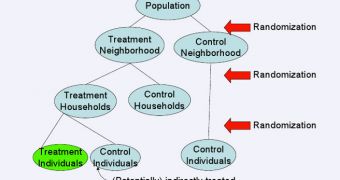According to the conclusions of a new scientific research, it would appear that social networks developing among friends, families, work colleagues and so on do not play a significant influence on voting patterns individuals display.
Whether or not a person votes, or which candidate he or she selects, is not something that can be easily influenced by social networks, investigators behind the new research argue. Roommates and spouses alike fail to change people's points of view on such issues.
Scientists at the University of Chicago, led by political sciences expert Betsy Sinclair, carried out the new research on a sample of voters, whose voter turnout and other behaviors were monitored.
The group was interested in assessing the impact that various networks have on voting. The investigation was complex because each individual is part of a large number of social networks, both small and large.
Quantifying the exact influence that each of them had on a person proved to be a very complex challenge for the investigations team. In the end, Sinclair's group managed to achieve this objective.
More than 20,000 individuals were a part of the research. Before the latest elections, she sent each and every one of them a postcard reminding them of their civic duties, and of their right to vote in the upcoming scrutiny.
In the group of people who got the reminder, election participation rates went up between 3 and 5 percent. However, it was determined that the notice did not influence other members of the household except the person the envelope was addressed to.
Sinclair's team randomly selected a number of nine-digit ZIP codes, and assigned them as either control or treatment neighborhoods. Within these areas, households were randomly selected to receive envelopes. The letters were however addressed to a single person in that particular home.
“There is little to no support for spillover. People are not mimicking behavior of other people in the household,” Sinclair says.
However, the expert says that the study also allowed her and her team to predict with 80 percent accuracy which candidate an individual in a certain ZIP code would vote for, based solely on studying patterns in the surrounding neighborhood.

 14 DAY TRIAL //
14 DAY TRIAL //